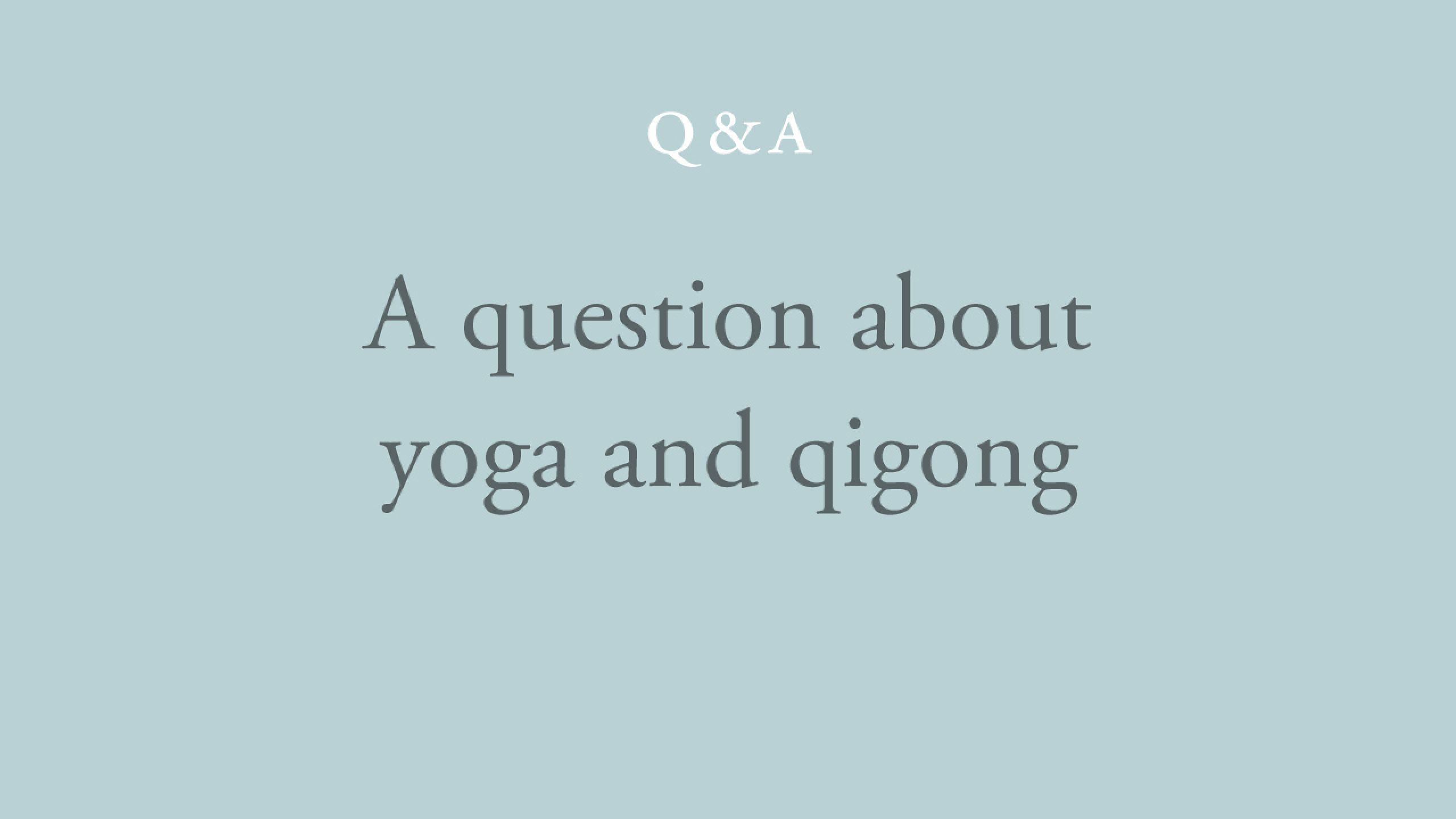Dear Rupert,
Some contemporary spiritual teachings stress modern man’s lack of embodiment, his disconnectedness from his own body, and go as far as to establish a correlation between present human disembodiment and the ecological situation of the larger body of the planet. There might be some truth in this.
But if I look at people who seem to be fairly embodied, such as many of the mainstream yoga teachers, I also realise that they are quite identified with or even attached to their bodies. On the other hand, famous Advaitins like Ramana and Nisargadatta give the impression of being completely unconcerned about or maybe even disconnected from their bodies. After all, ‘We are not the body’ is what we have to realize, isn’t it?
Would you say that there is inherent danger in embodiment practices like yoga and qigong (or even worse, working out at the gym) in the way that they strengthen our identification with the body instead of loosening or even transcending it?
Thanks for your reply,
Max
Dear Max,
The short answer is no, there is no inherent danger in such practices. Such practices are neutral and may, depending on the attitude with which they are undertaken, either strengthen or weaken the sense of a separate self.
If such practices are undertaken with a view to alleviating the sense of lack that is inherent in the entity we imagine ourself to be, or to aggrandising it with achievements of a physical or psychological nature, such activities will validate or strengthen the sense of separation and the unhappiness that is inherent within it.
However, if the very same activities are undertaken as an offering of the body to the open, loving, transparent presence of awareness in which they appear or indeed to express, share and celebrate its effortless, inherently free nature, they will not strengthen identification.
* * *
In your question I sense an agenda with the body and hence a belief in the need to loosen identification with or transcend it. Neither is necessary. Awareness already transcends the body. It is inherently free and independent of it.
Seeing this clearly, rather than trying to make it happen, places one in the right relation to the body and relieves one of any agenda with it, either to manipulatie it to fulfil the needs of an imaginary entity or to deny it, which is an inverted form of the same thing.
Instead the body may be experienced as open, empty and transparent, and as such it becomes the theatre in which the divine nature of awareness is honoured, expressed and shared. In other words, awareness is already transcendent. However, it is also immanent. That is, it not only transcends the body but also pervades it.
In fact, all we know of the body are sensations and perceptions, or, it would be more accurate to say, we know only sensing and perceiving. Whatever it is that knows sensing and perceiving is utterly, intimately one with them. There is no other substance present there other than knowing, and the only substance present in knowing is awareness.
From this understanding, which is a higher point of view than the first one I mentioned, there is no body as such to be transcended or disassociated from. There is only awareness.
To know yourself as the transcendent witness of the body is the first step and is known as wisdom. To know yourself as the substance of allseeming things, rather than just a fewseeming things, is known as love. Allow the former to slowly give way to the latter in your disinterested and loving contemplation of experience.
In other words, the ideas of transcendence and embodiment both rely on the belief in the reality of the body as such. Explore the body and you will find only awareness there. That is, it finds only itself there.
With love,
Rupert

